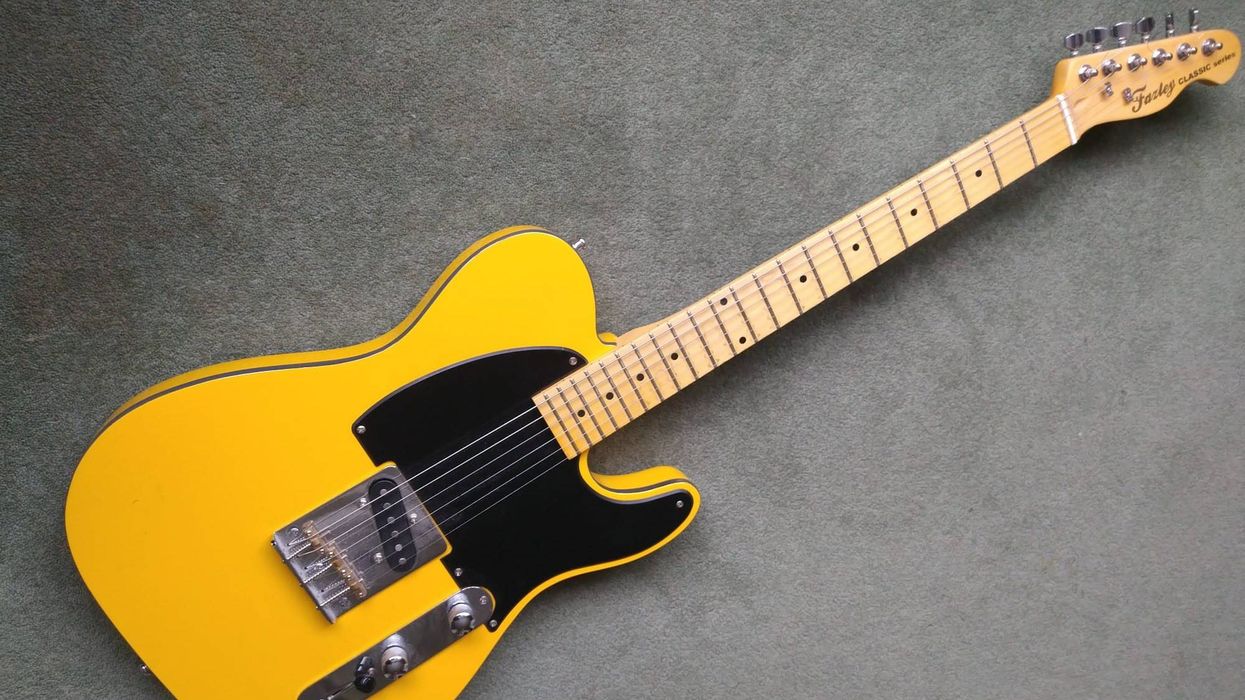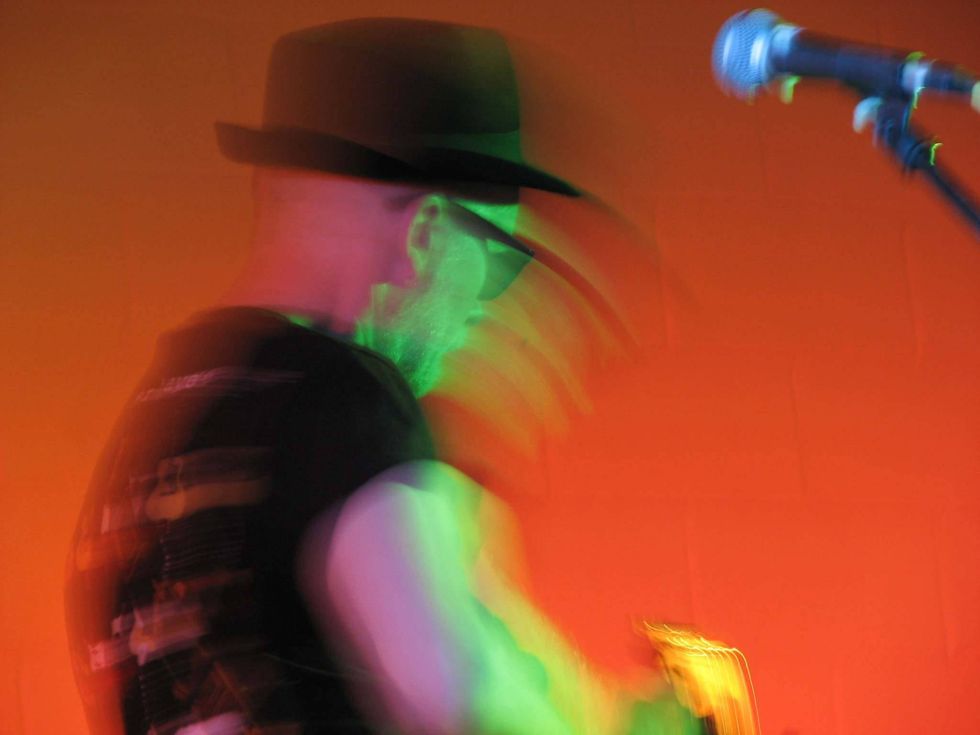My guitar pickin' brethren, it's all about the song. The most mind-bending guitar solo becomes merely an empty, music-store “dweedal-ladweedal- la" when played over a crap song. Legends & Lyrics, a television series which begins airing in April 2009 on PBS, chose some of the world's best songwriters and filmed their performances in an attempt to showcase the craft of songwriting. Some of these songwriters employed backing musicians to help fill out their sound. I was hired by Motown legend Lamont Dozier for one episode and rock legend Justin Hayward (of The Moody Blues) for another.
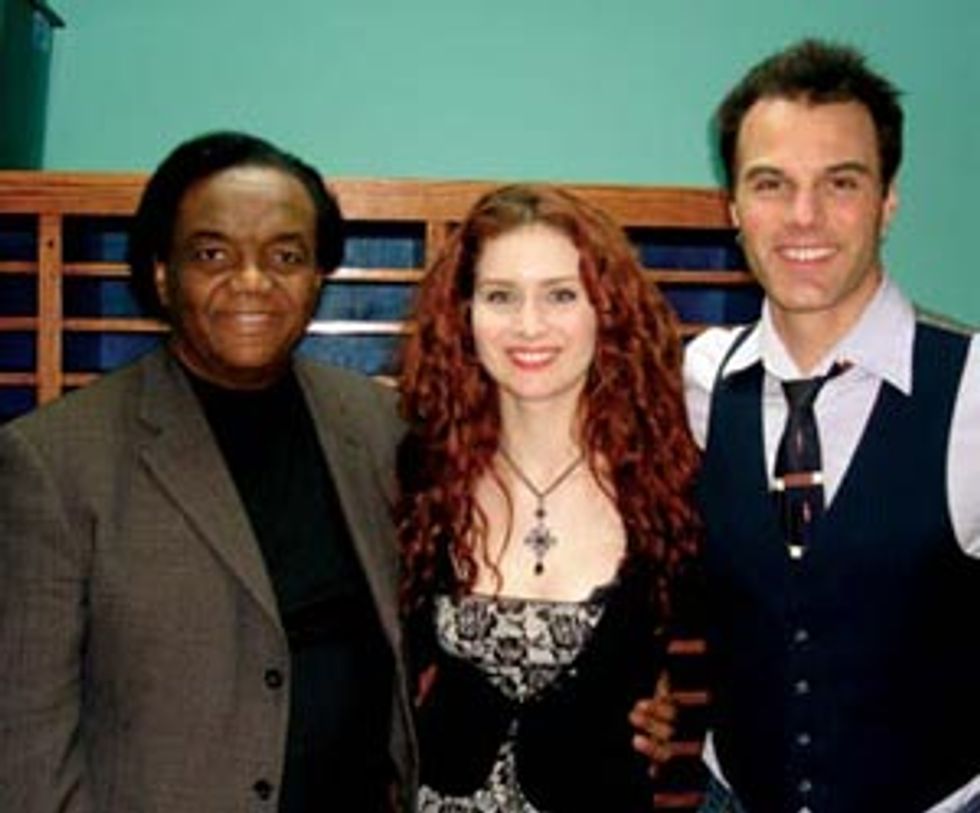 Lamont Dozier, Megan Mullins and John Bohlinger. |
Lamont Dozier is best known as part of the Holland-Dozier-Holland songwriting and production team responsible for a ton of Motown. Unless you've spent your entire life in a cave, with your fingers firmly planted in your ears, you know his set list:
1. Stop! In the Name of Love
2. Where Did Our Love Go
3. I Can't Help Myself (Sugar Pie Honey Bunch)
4. My World Is Empty Without You
5. How Sweet It Is to Be Loved by You
The challenge arose in that Lamont's version of these standards strayed far from the Motown arrangements we're familiar with. My hands naturally drifted toward the changes used in The Supremes' albums because I could not expunge the Motown arrangements from my subconscious. I was forced to read the entire show. Reading isn't normally a problem, but my tiny charts were hard to see way down by my feet, and I was singing backgrounds, which meant that I lost the foggy line-of-sight to the charts while on the mic. Fortunately, the gig went well because the strength of these songs pulled through the performance.
There's an interesting story behind these familiar songs. Lamont had already cut the track for “Where Did Our Love Go" for The Marvelettes, who refused the song. Motown would charge Lamont for the session unless somebody else cut the track. Lamont began the hard sell to other acts. He called The (yet-to-have-a-hit) Supremes and said, “Girls, I have got the song that will make you stars." They replied, “We already heard about that dog of a song you've been pitching around." Luckily a record was due and the hitless girls did not have the juice to reject the work of Barry Gordy's top writer. In turn, The Supremes protested with a passive-aggressive performance, turning a complicated vocal line into an angry, repetitive, unison of “baby baby, ooh baby baby." Lamont maintains that this angry delivery helped make it their first #1 single. Another factor that helped the song's success was that Lamont had recorded the track in a low key for The Marvelettes. On The Supremes' earlier work, Diana Ross sang considerably higher, but was forced to rework her style to fit the track. “Where did Our Love Go" introduced the world to the warmer register that Diana Ross has utilized for the rest of her life.
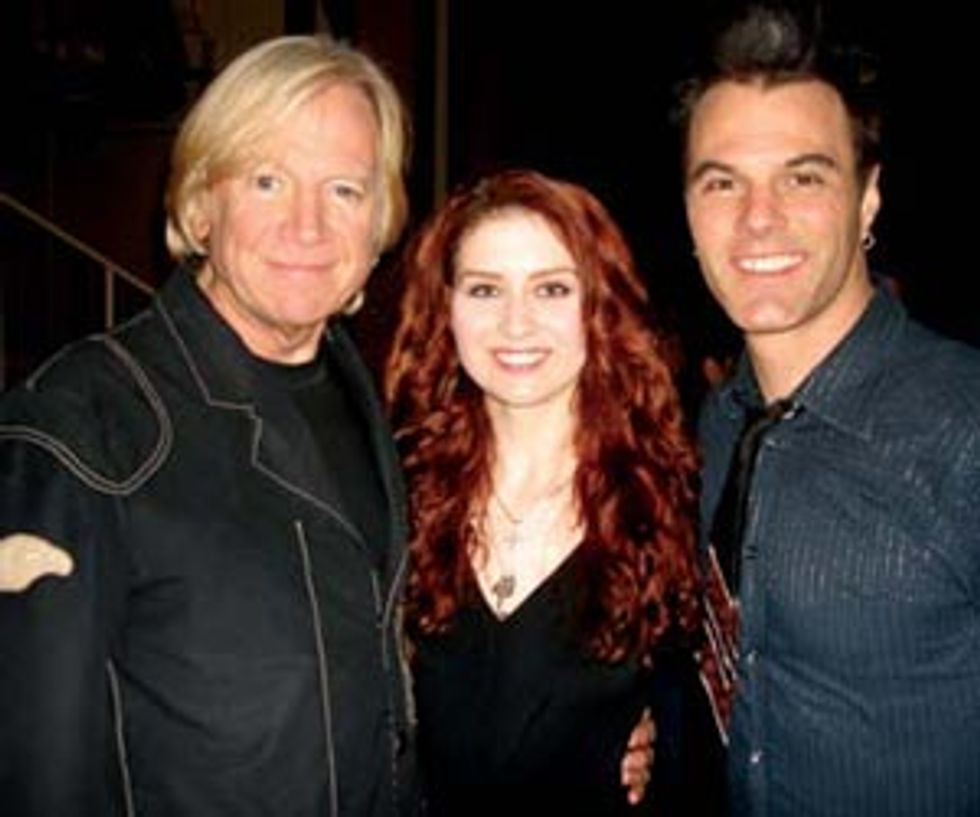 Justin Hayward, Megan Mullins and John Bohlinger. |
The next day I played with Justin Hayward. Justin is an intimidating guy—rather, his body of work is intimidating. He's actually an amazingly talented, humble, kind person with a great sense of humor, but his amazing singing/ playing/songwriting and good looks make me feel like a beta male at best. Having learned that the show isn't conducive to reading, I vowed to memorize Justin's set. (“Nights in White Satin," “Driftwood" and “Wildest Dreams" were with me; “Question" and “Who Are You Now" Justin played alone.)
Again, the omnipresent Moody Blues songs truly comprise part of the soundtrack of our lives. I've heard “Nights in White Satin" thousands of times, but I never really studied that signature lick. The first ten times I played it, I knew I didn't have it quite right until I counted out the beats like a fourth grader. The song is in 6/8, with the signature line beginning on the fourth beat of the second measure. Try playing it without counting and you will want to start early. If you watch the program and it looks like I'm counting, it's because I am.
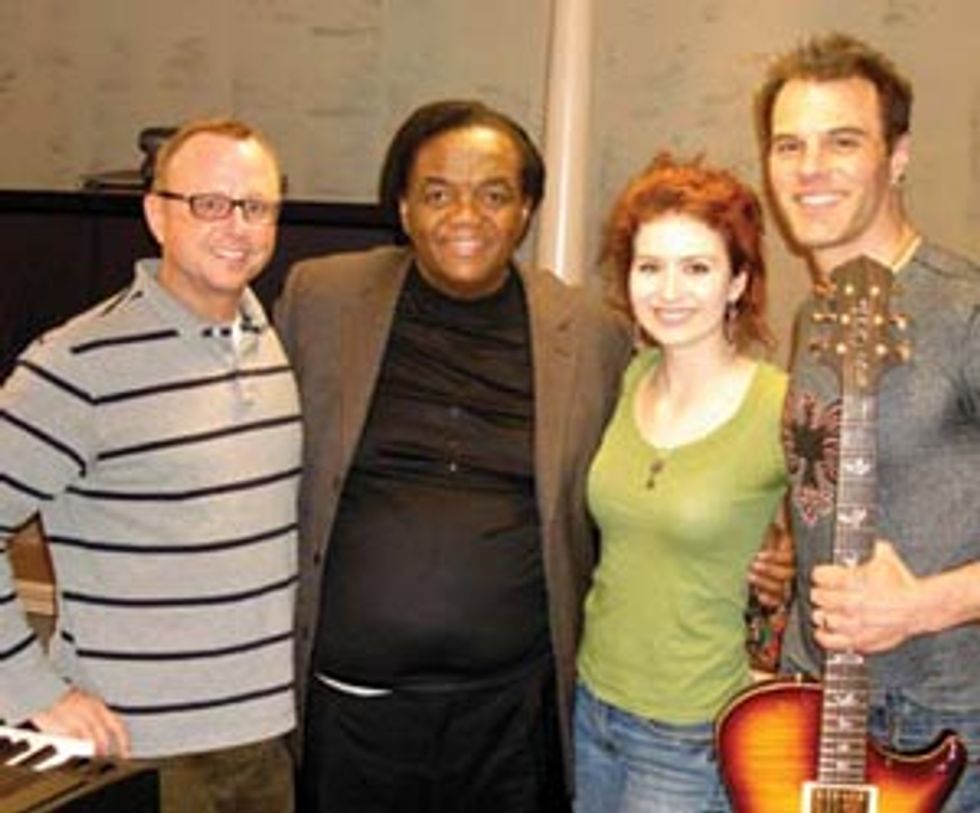 Pianist William Brendle (American Idol), Lamont Dozier, Megan Mullins and John Bohlinger. |
Justin also had an interesting story behind all of his songs. Once, they had a session and no songs; it was up to Justin to write something. Around 3 a.m. the night before the session, he found a few different scraps of two separate songs and segued them together. The next morning he went to the studio sleep deprived but completely confident that it would work. He convinced his skeptic band mates and they recorded live, with no overdubbing. Listening to him play the song after hearing the back story I thought, “Well, of course this is two separate songs." It doesn't matter: “Question" became their second biggest hit in the UK.
The Moody Blues, The Supremes, and many others became part of our lives because of the power of the songs, more than their voices or instrumental prowess. If you aspire to become a legend, write some killer lyrics.
John Bohlinger
is a Montana native and former Ivy Leaguer who was close to earning a
Ph.D. in psychology when he dropped out to pursue a life in music. "The
psych background comes in handy when dealing with the music business"
John quips. Over his fifteen years in Nashville, John has toured the
world, holding down the guitar/mandolin/pedal steel end for over 30
major label artists; he currently leads the band for the hit show Nashville Star,
which has moved to NBC. John's songs and playing can be heard in
several major motion pictures, major label releases and literally
hundreds of television drops. For more info visit johnbohlinger.com





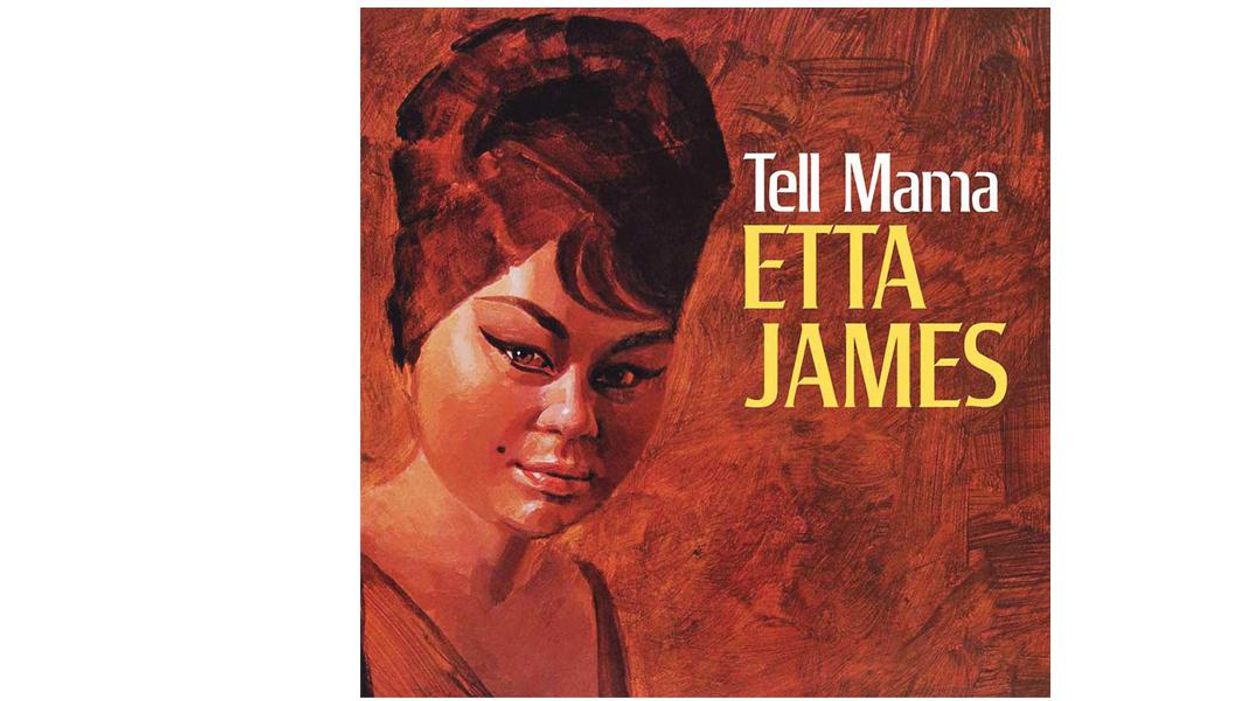
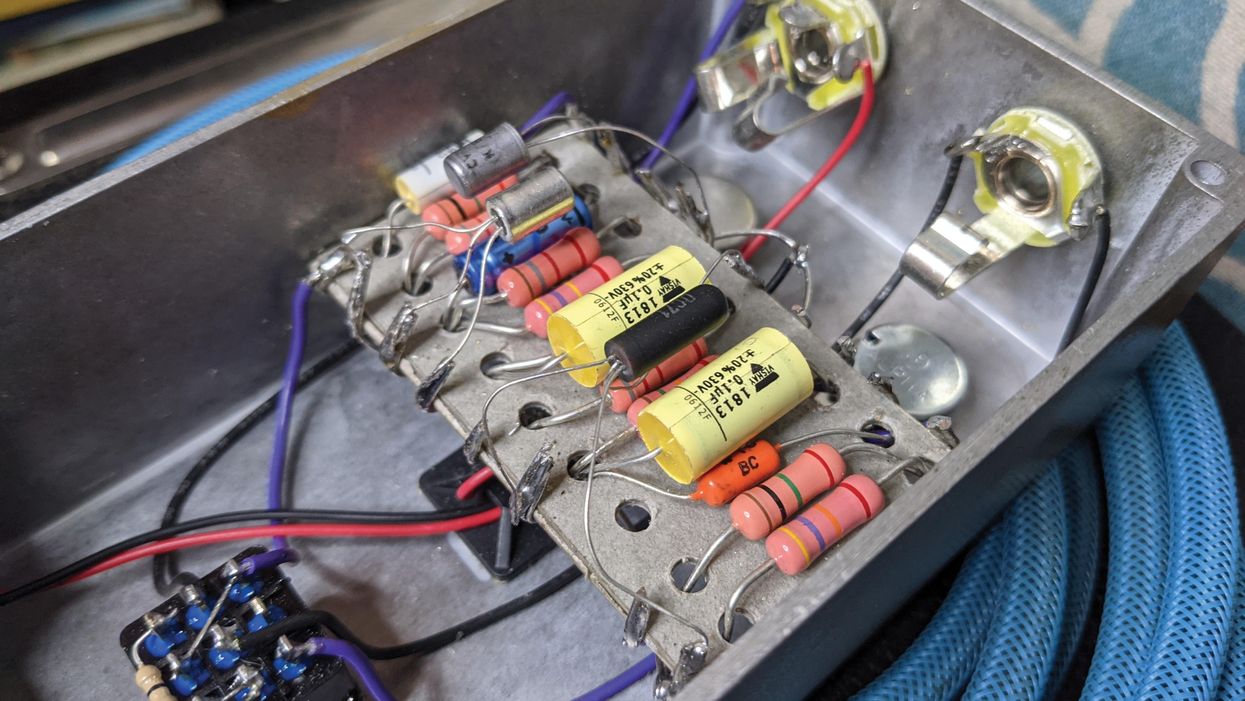






![Rig Rundown: Russian Circles’ Mike Sullivan [2025]](https://www.premierguitar.com/media-library/youtube.jpg?id=62303631&width=1245&height=700&quality=70&coordinates=0%2C0%2C0%2C0)
